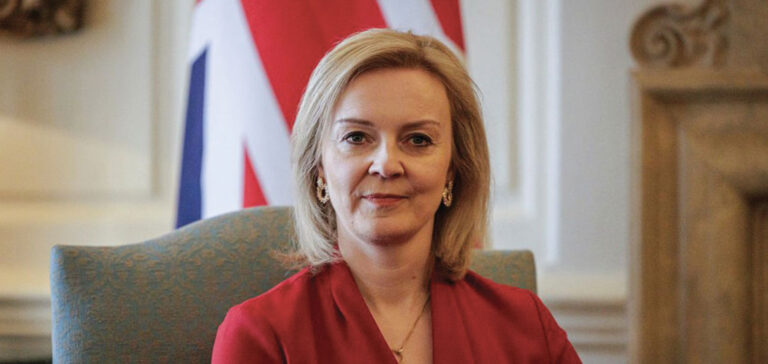Shale gas, deregulation: the first decisions of Liz Truss’ Conservative government in the UK are raising concerns about its climate policy, in a country that is feeling more and more
the effects of global warming, but is experiencing an unprecedented energy crisis.
Pressed to act in the face of soaring energy prices, the new Prime Minister began her duties in early September by announcing that she would speed up oil and gas development in the North Sea and freeze the moratorium on hydraulic fracturing, a polluting technique for extracting shale hydrocarbons.
This tax-hater has also refused to tax the oil companies, despite the record profits they have made in recent months.
For environmentalists, the introduction last week of a bill to amend or remove hundreds of environmental protection laws inherited from the European Union by the end of 2023 was the last straw.
“Nature is under attack by a series of dangerous decisions,” charged Wildlife Trusts Director Craig Bennett.
“Vital legal protections for nature are at risk, fossil fuel extraction is
preferred to renewable energies and the government is rolling back benefits for farmers who work in a more sustainable way.”
– Economy versus climate –
Months of drought in parts of the UK, record temperatures this summer and heat-induced fires have struck a chord in British minds about the future consequences of climate change.
The country is one of the pioneers in Europe in the fight for the climate, with a major law dating back to 2008 and a rapid transformation of its energy model, with coal accounting for only 3% of the energy consumed in 2020, compared to 20% in 2013.
Very committed to the COP26 climate conference in Scotland in 2021, former Prime Minister Boris Johnson has promised to make the United Kingdom the Saudi Arabia of wind power and has presented ambitious climate targets such as the end of petrol and diesel vehicles.
Liz Truss, who succeeded her, was never seen as particularly committed to the climate, stating her reluctance to support certain measures to promote renewable energy or environmental protection.
But his first decisions confused even his own camp.
“The new government must not listen to the sirens calling for a reversal of our environmental commitments when the solutions to the multiple crises we face – climate change and the cost of living – are inseparable,” said Chris Skidmore, Conservative MP and former Energy Secretary.
A cross-party group of pro-environment parliamentarians also wrote to Liz Truss in early September asking her to re-commit herself firmly to the carbon neutrality goal.
While she said she was “fully committed to achieving carbon neutrality by 2050″, the Prime Minister decided to “re-examine” this goal to ensure it is achieved “in a way that is good for economic activity and growth.”
– “Climate denial” –
Doubts about the UK’s future climate policy are also fuelled by Liz Truss’ choice to appoint Jacob Rees-Mogg, known for his borderline climate-scepticism, as energy minister.
A known opponent of onshore wind power, he has in the past blasted “climate alarmism” and recently accused Russian President Vladimir Putin of funding shale gas opponents in the UK.
“Putting someone in charge of Energy who recently suggested that ‘every drop of oil’ should be extracted from the North Sea is deeply worrying,” attacked Dave Timms, a UK official of the NGO Friends of the Earth, in a statement sent to AFP.
This appointment “suggests that the +tories+ (in power since 2010, editor’s note) have not learned anything after years of incompetence,” said Rebecca Newsom, Greenpeace.
On the other hand, the Labour Party has made the climate issue one of the main angles of attack against the Conservatives and is fine-tuning its program for the parliamentary elections, scheduled for 2025 at the latest.
In his much-anticipated speech to his party’s annual convention, Labour leader Keir Starmer unveiled a “plan for green prosperity” on Tuesday, advocating support for growth and the fight against climate change.





















